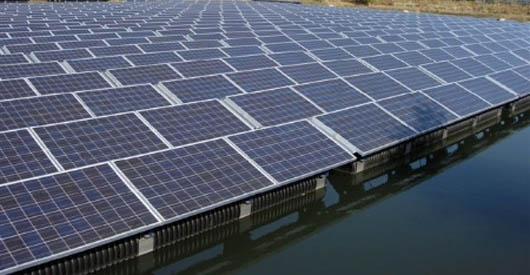Community Solar Gardens Help Renters Go Green, but Solar Companies are Concerned
If you live rent an apartment, own a condominium, live in a shady neighborhood, or simply don’t want solar panels on your roof, residents of Colorado have a solution: community solar gardens. What’s a community solar garden? It’s a unique idea to allow residents to purchase a share of a large solar array that would give them credit on their utility bill and qualify for rebates.
The “solar gardens” bill was the idea of Colorado State Representative Claire Levy (D-Boulder). Ecopolitology explains:
The idea for the bill came from stricter green building standards in Boulder that requires many new buildings to generate some portion of their own renewable energy. “The idea is that if somebody cannot meet the renewable energy requirements on site, and if there are solar gardens available within Boulder County, that they would be able to put their renewables at the solar gardens as a way of meeting the requirement,” Commissioner Will Toor said.
Community solar gardens sound like a great idea to make renewable energy more accessible; however, solar companies are concerned. The Daily Camera clarifies:
Eriks Brolis, co-owner of Namaste Solar in Boulder, said local solar companies aren’t opposed to the idea of solar gardens, but they worry that some of the intricacies of the bill’s language might create competition for funds between solar gardens and rooftop solar.
“We’re continuing to work with Representative Levy to ensure that the opportunity for folks to install solar on their own homes isn’t reduced by these new opportunities,” he said. “We want to make sure the new market doesn’t replace the existing ones for customers.”
At issue is the way solar gardens would be categorized — as “retail” instead of “wholesale” power.
Retail designation allows customers to receive utility credits not available if the gardens were classified as wholesale, but it also puts garden consumers in competition with rooftop installations homeowners for limited rebate funds.
The largest community solar gardens allowed under Levy’s bill would be “up to 2 megawatts in size, the equivalent of about 400 average rooftop installations”. Small, local residential solar installation companies fear such projects would be awarded to large corporations; however, Levy’s bill attempts to protect local PV companies by requiring that “half of the 6 megawatts allowed for community solar gardens must come from gardens that are 500 kilowatts or smaller.”












